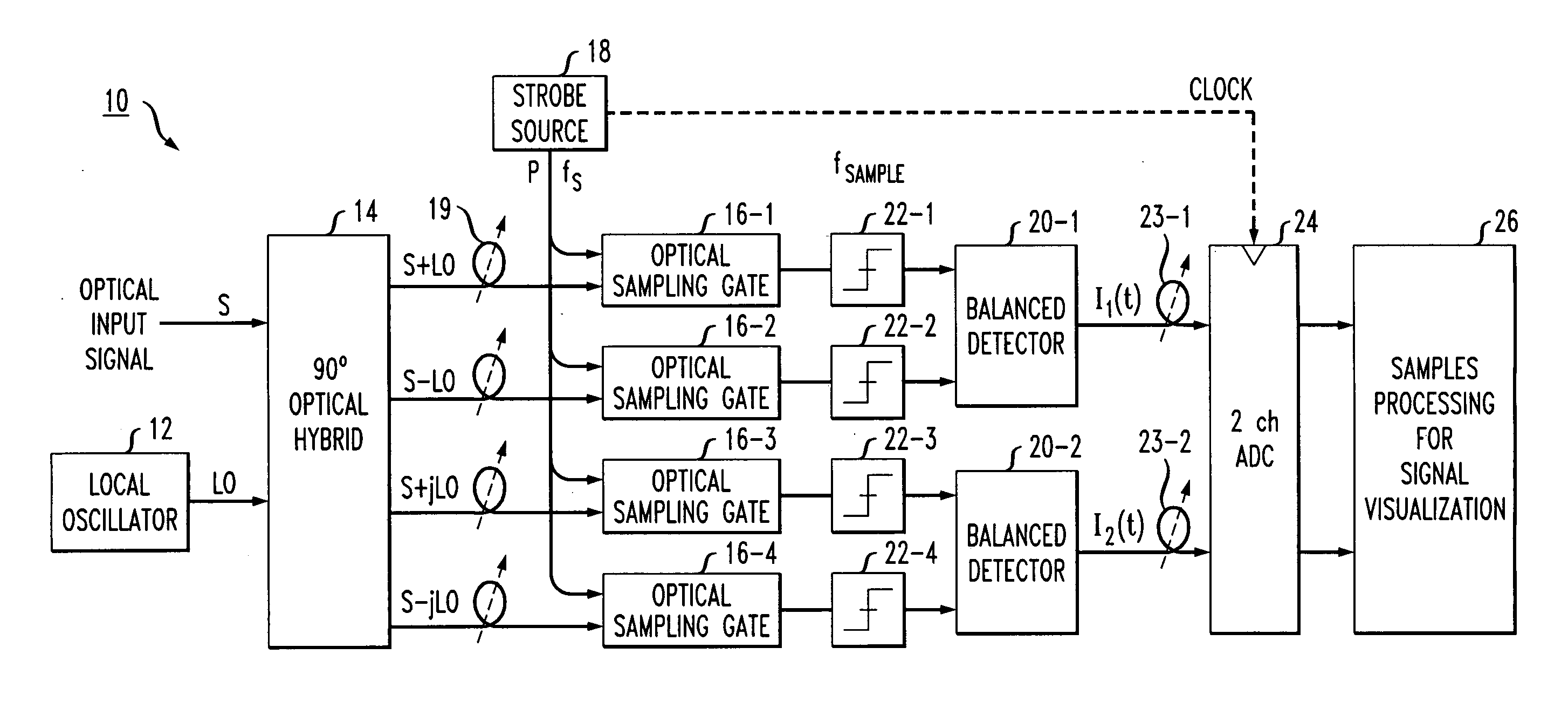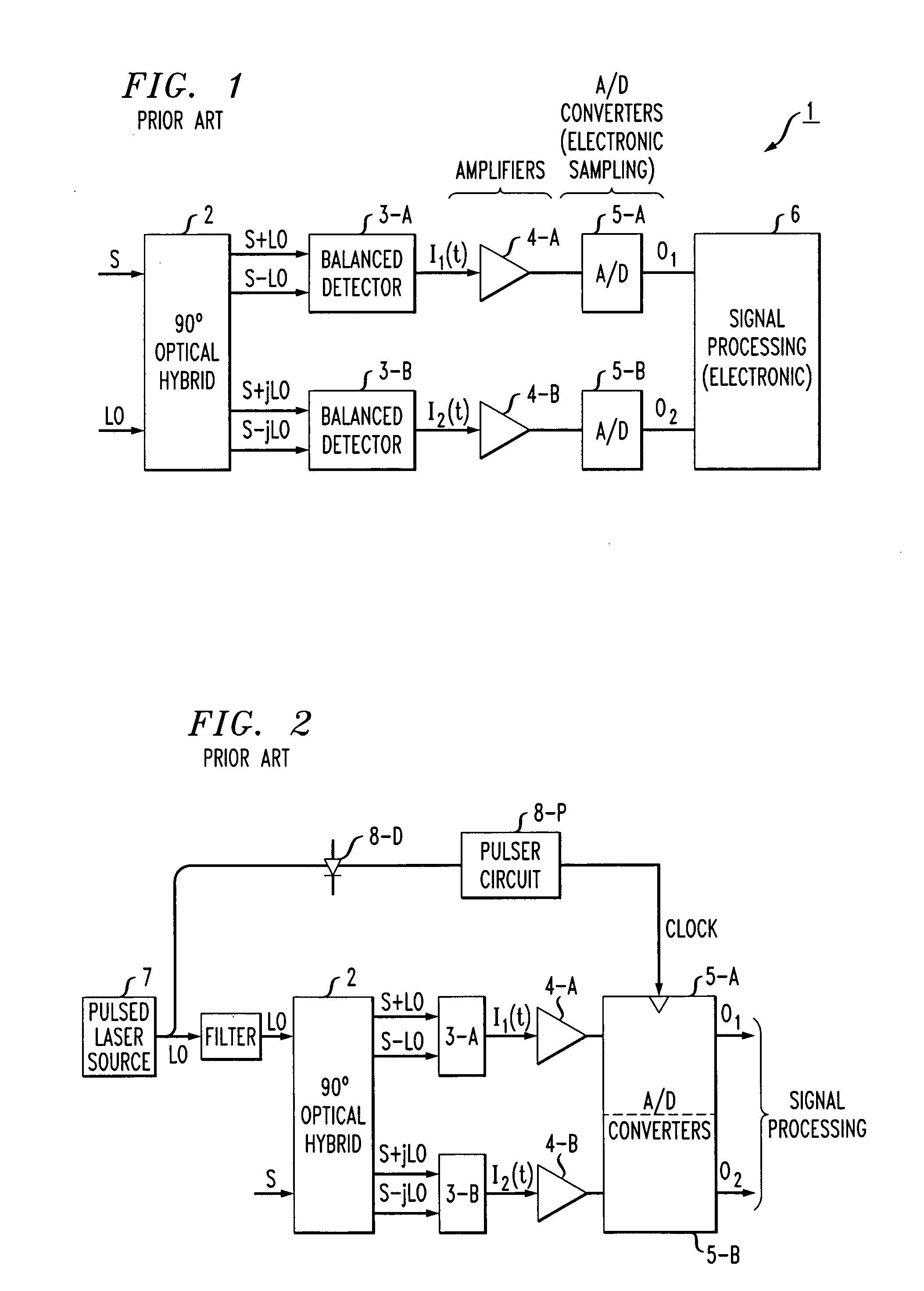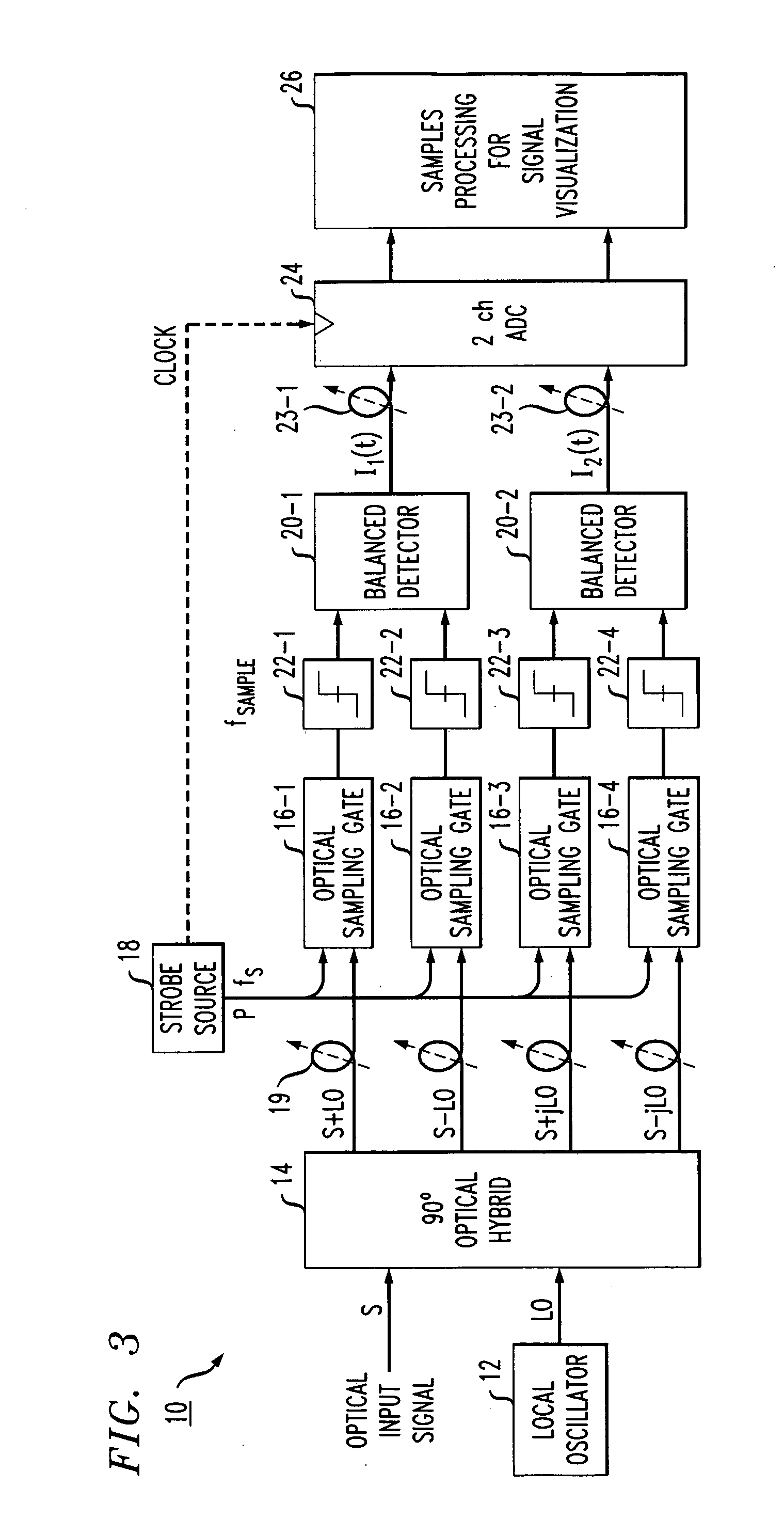All-Optical, Phase Sensitive Optical Signal Sampling
a phase sensitive, all-optical technology, applied in electromagnetic receivers, electromagnetic transmission, transmission monitoring, etc., can solve the problems of affecting the accuracy of the signal, and reducing so as to reduce the number of certain components. , the effect of relatively high cos
- Summary
- Abstract
- Description
- Claims
- Application Information
AI Technical Summary
Benefits of technology
Problems solved by technology
Method used
Image
Examples
Embodiment Construction
[0035]As discussed above, optical sampling technologies can provide extremely high bandwidth measurement capabilities, depending on the temporal width of the strobe pulses (also referred to herein as “gating” pulses) used to form the sampling signal. In this regard, measurement bandwidths as high as 500 GHz have been demonstrated, and optical sampling has been implemented using a wide variety of nonlinear phenomena and hardware arrangements.
[0036]A key aspect to the present invention is that in addition to providing a high measurement bandwidth, the optical gating preserves the relative phase relationship between optical input signal S and reference signal LO throughout the entire sampling process, where the relative phase relationship is not affected by pulse-to-pulse phase instabilities of the strobe source. In a preferred embodiment of the present invention, this phase preservation is an inherent consequence of utilizing a nonlinear optical system as the sampling component. In th...
PUM
 Login to View More
Login to View More Abstract
Description
Claims
Application Information
 Login to View More
Login to View More - R&D
- Intellectual Property
- Life Sciences
- Materials
- Tech Scout
- Unparalleled Data Quality
- Higher Quality Content
- 60% Fewer Hallucinations
Browse by: Latest US Patents, China's latest patents, Technical Efficacy Thesaurus, Application Domain, Technology Topic, Popular Technical Reports.
© 2025 PatSnap. All rights reserved.Legal|Privacy policy|Modern Slavery Act Transparency Statement|Sitemap|About US| Contact US: help@patsnap.com



